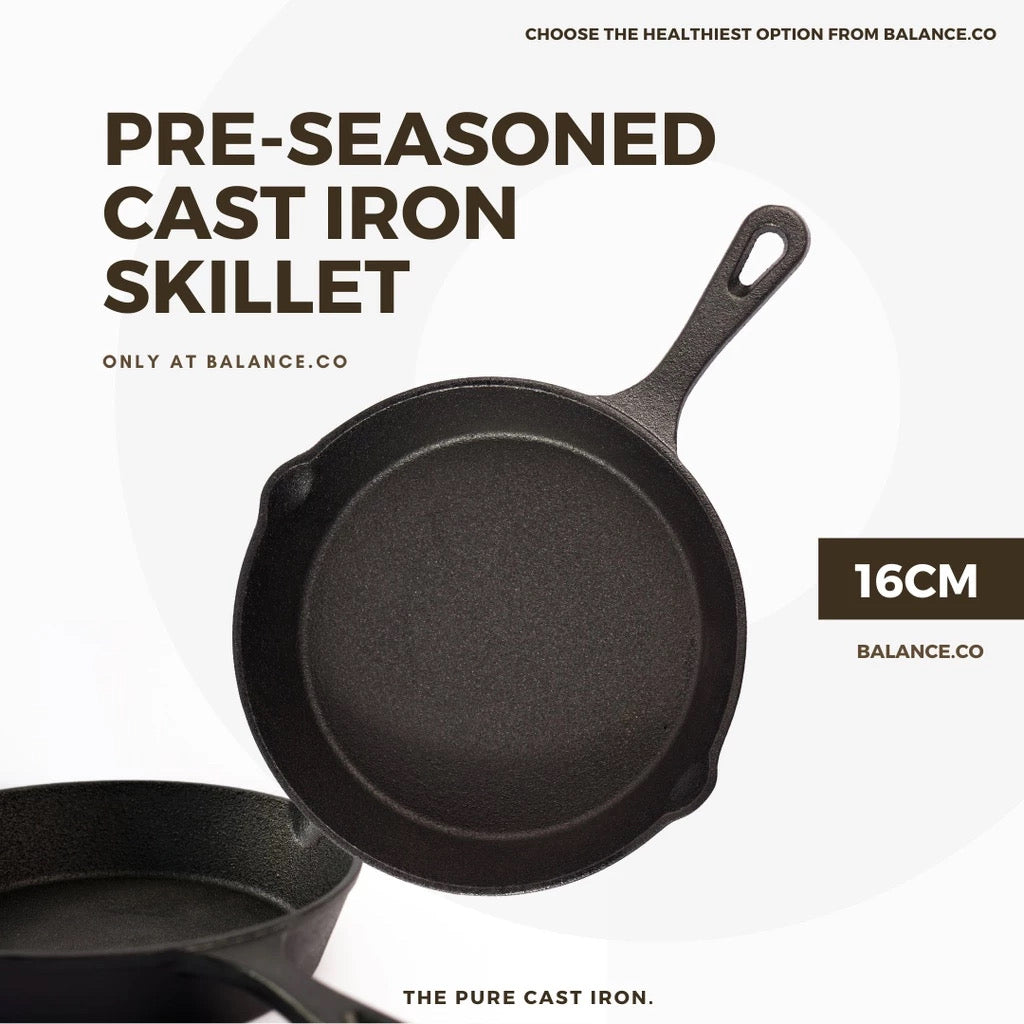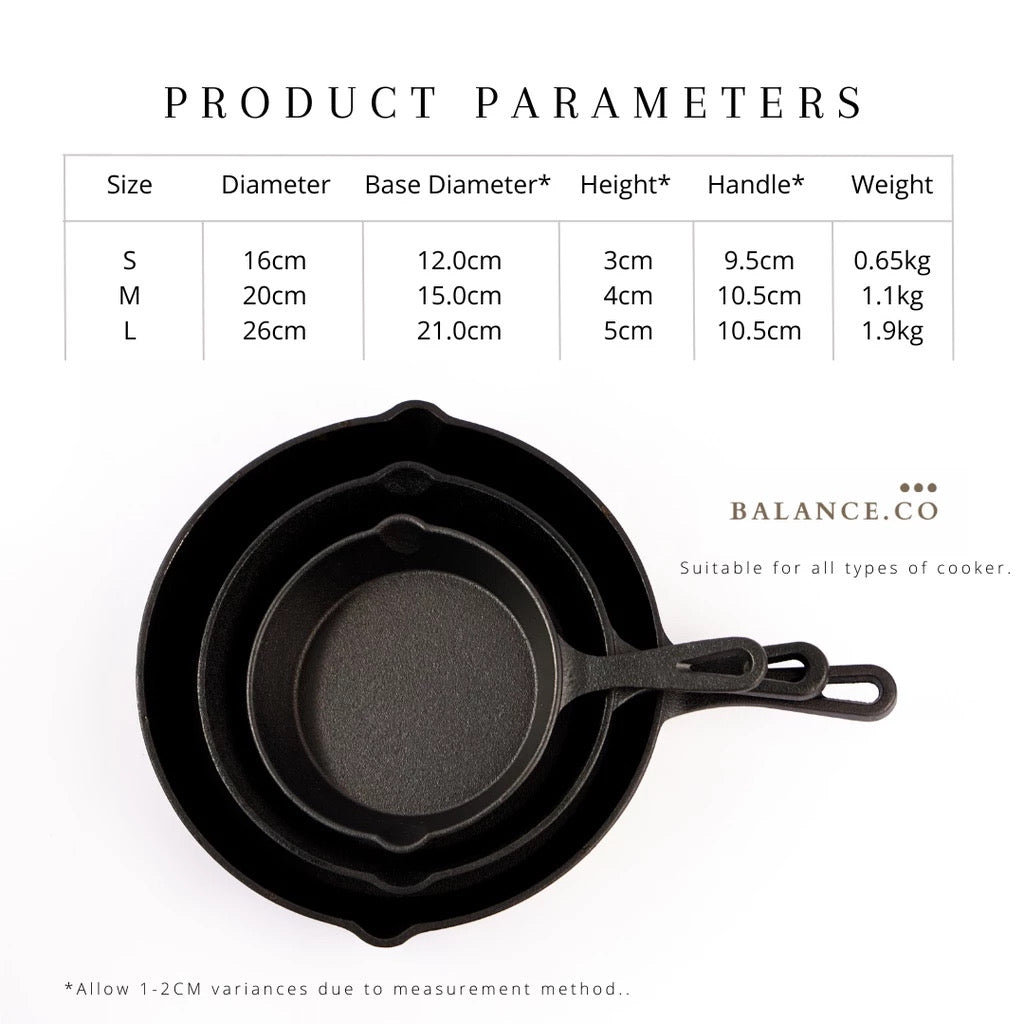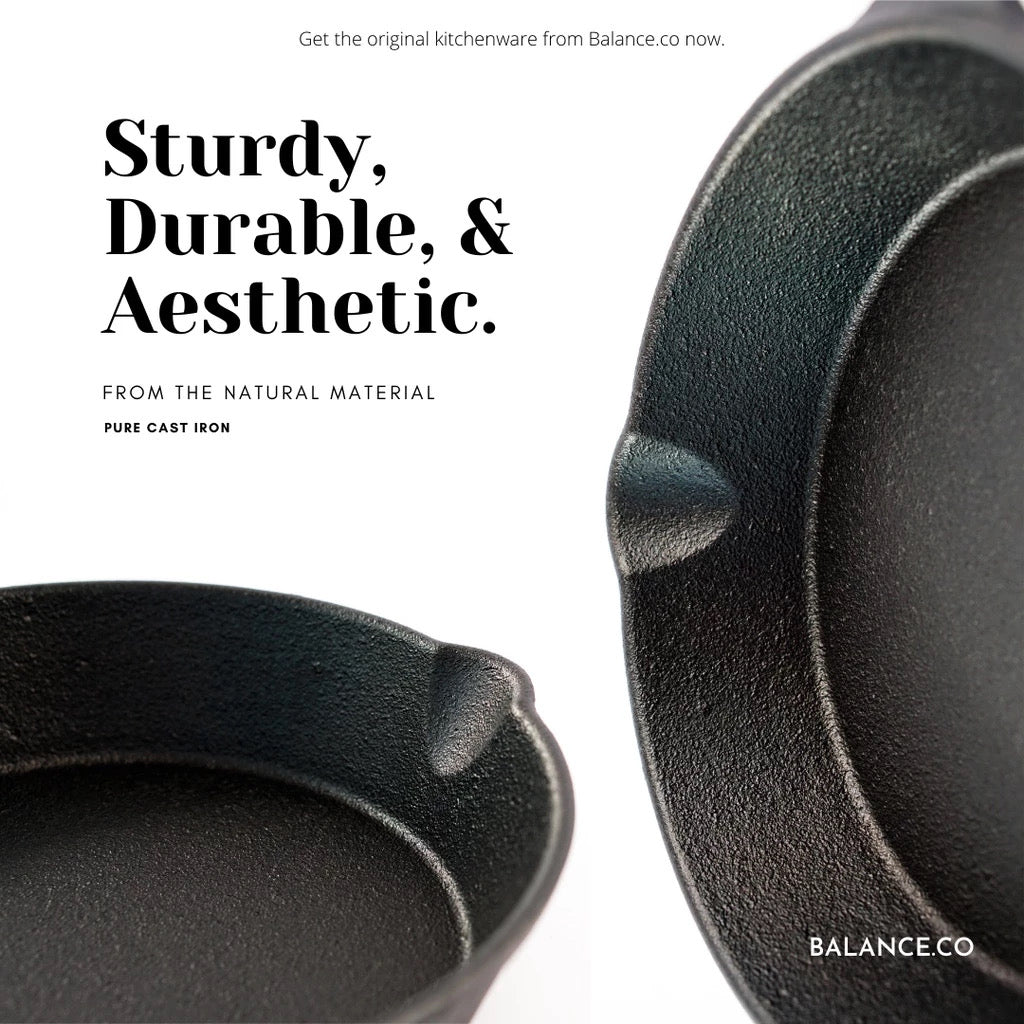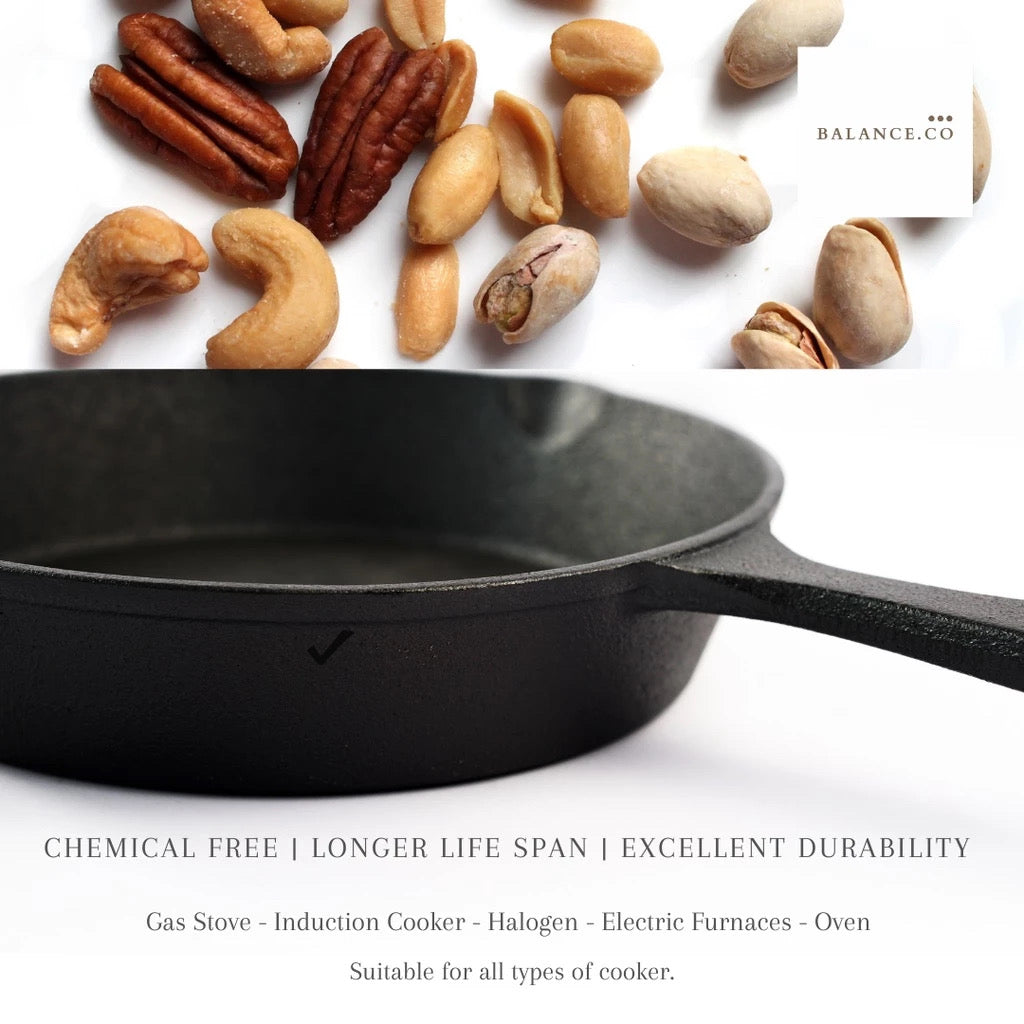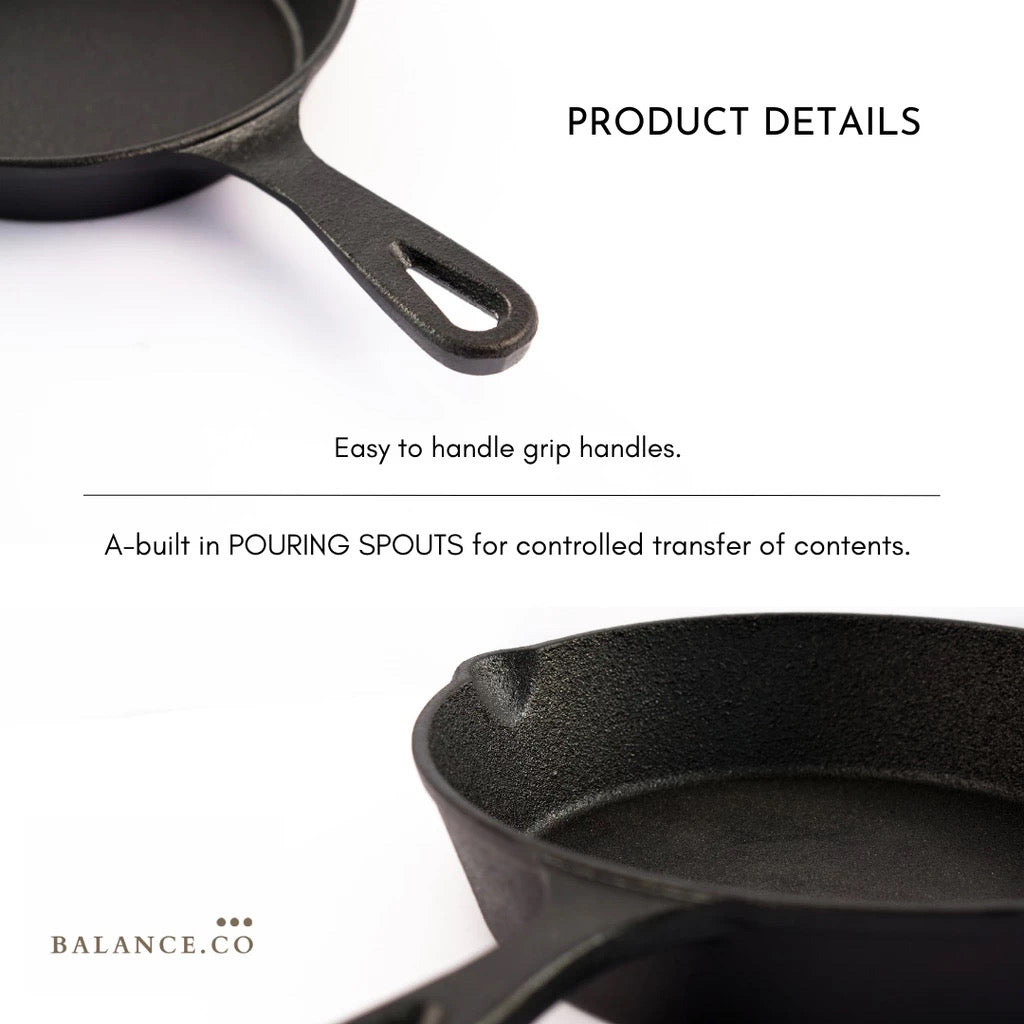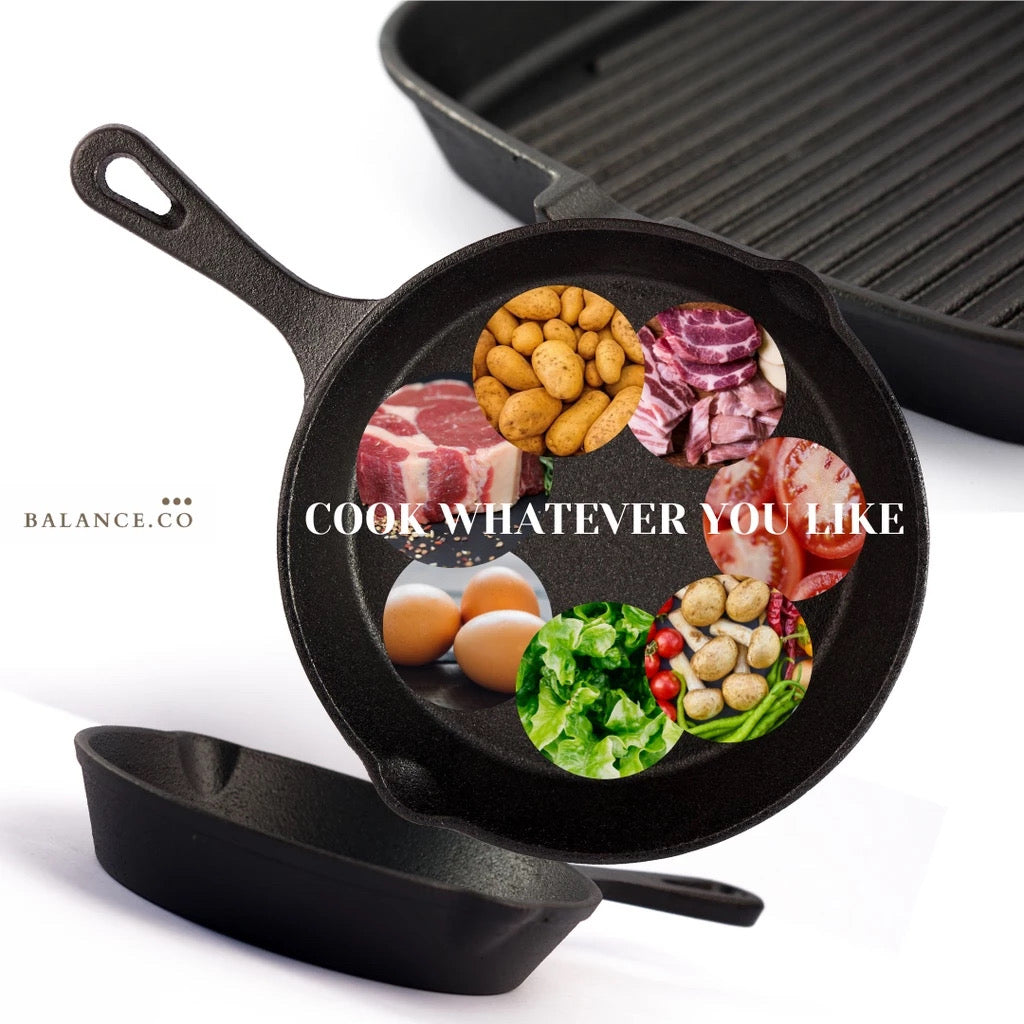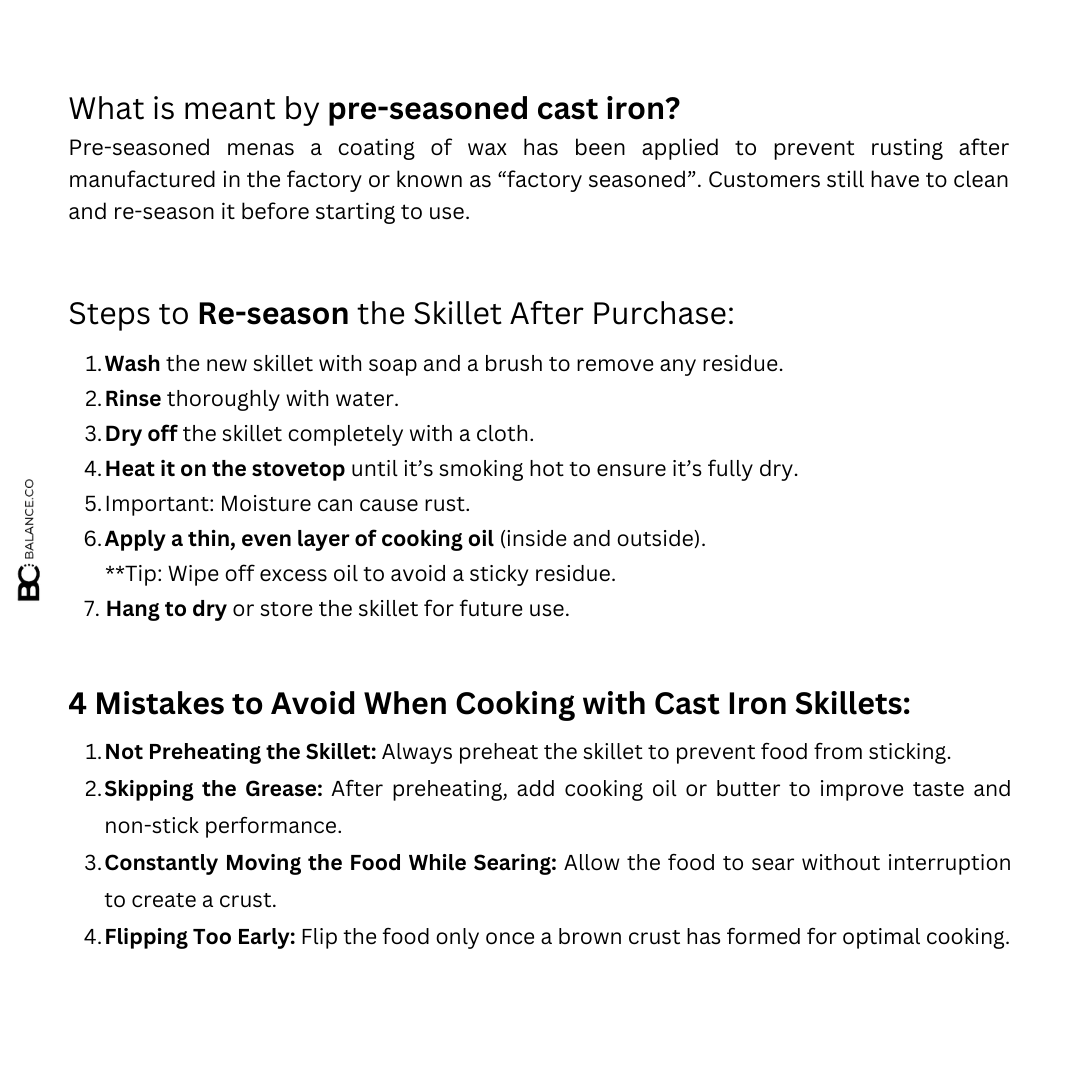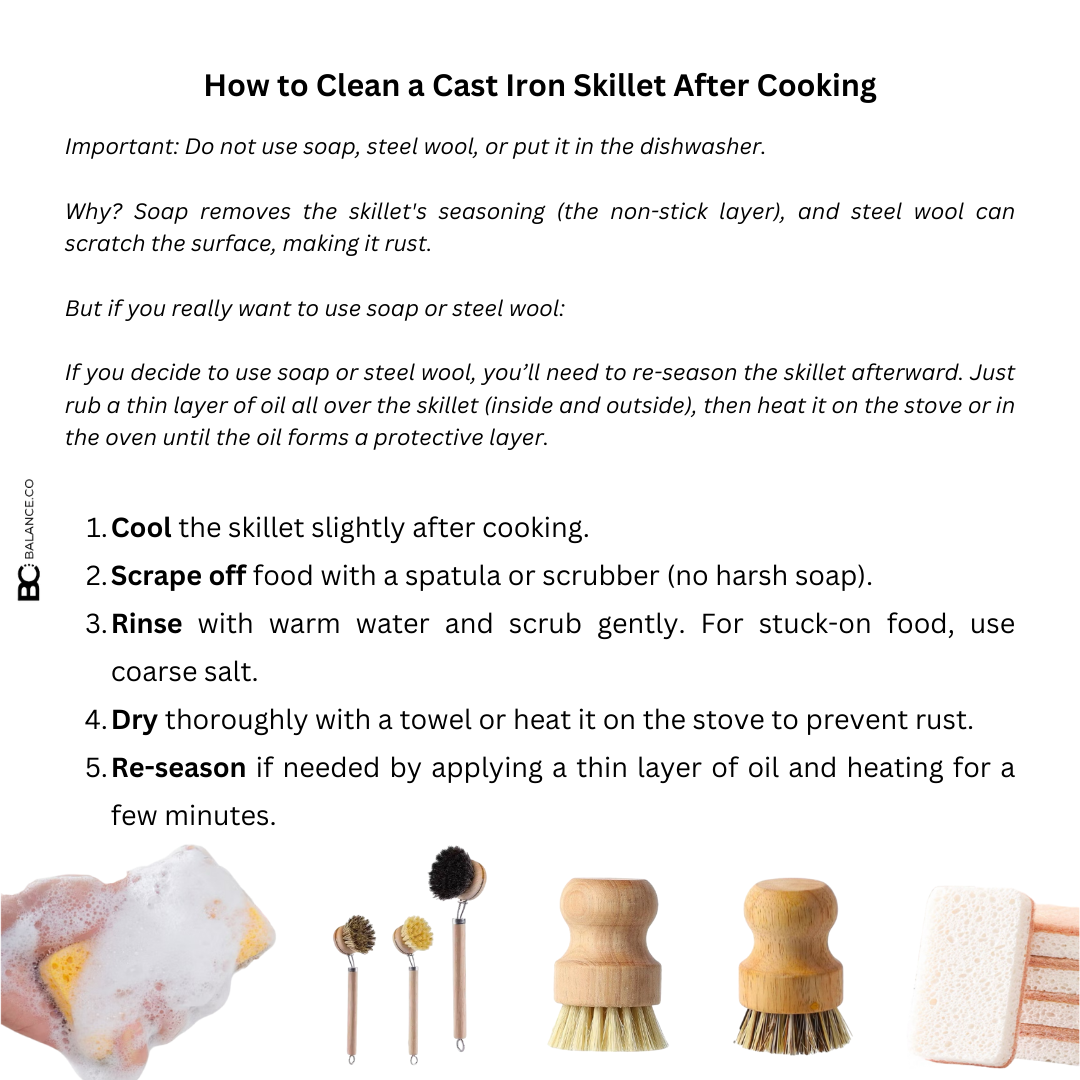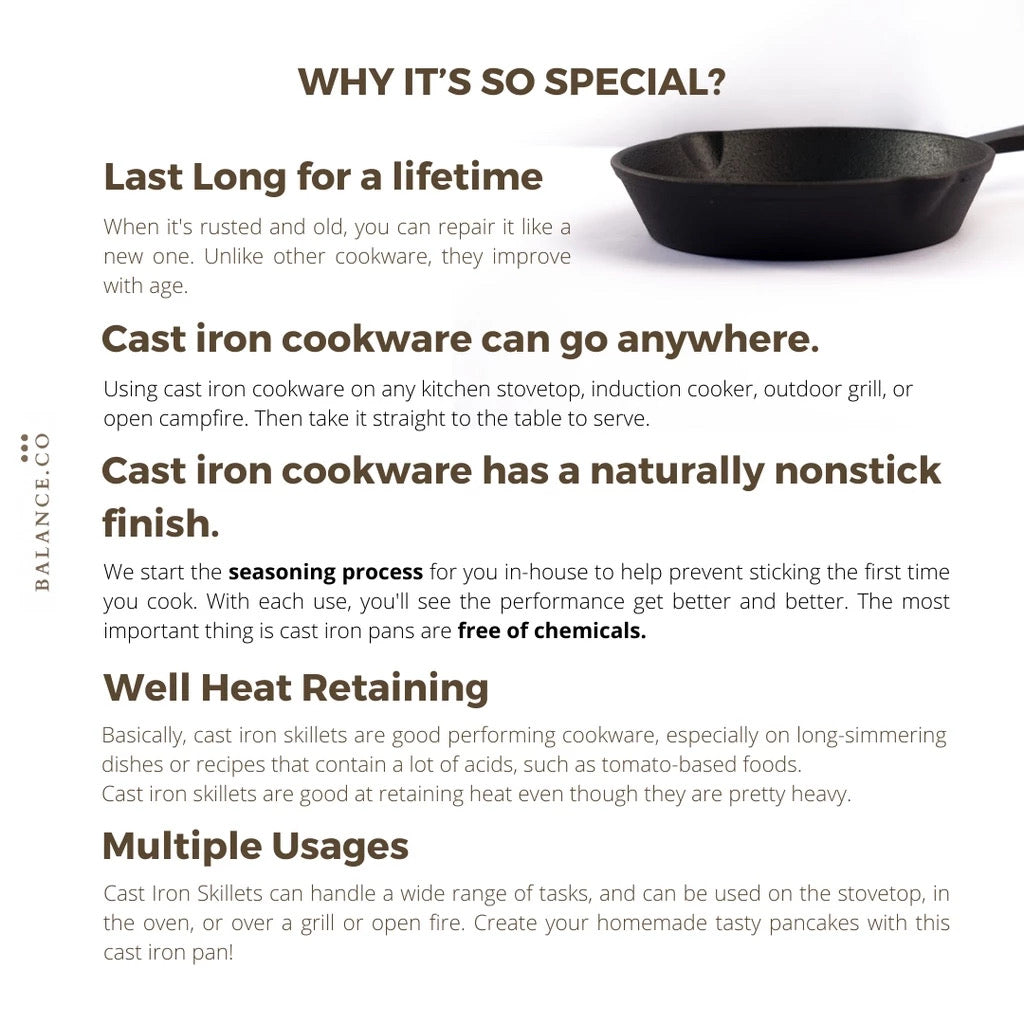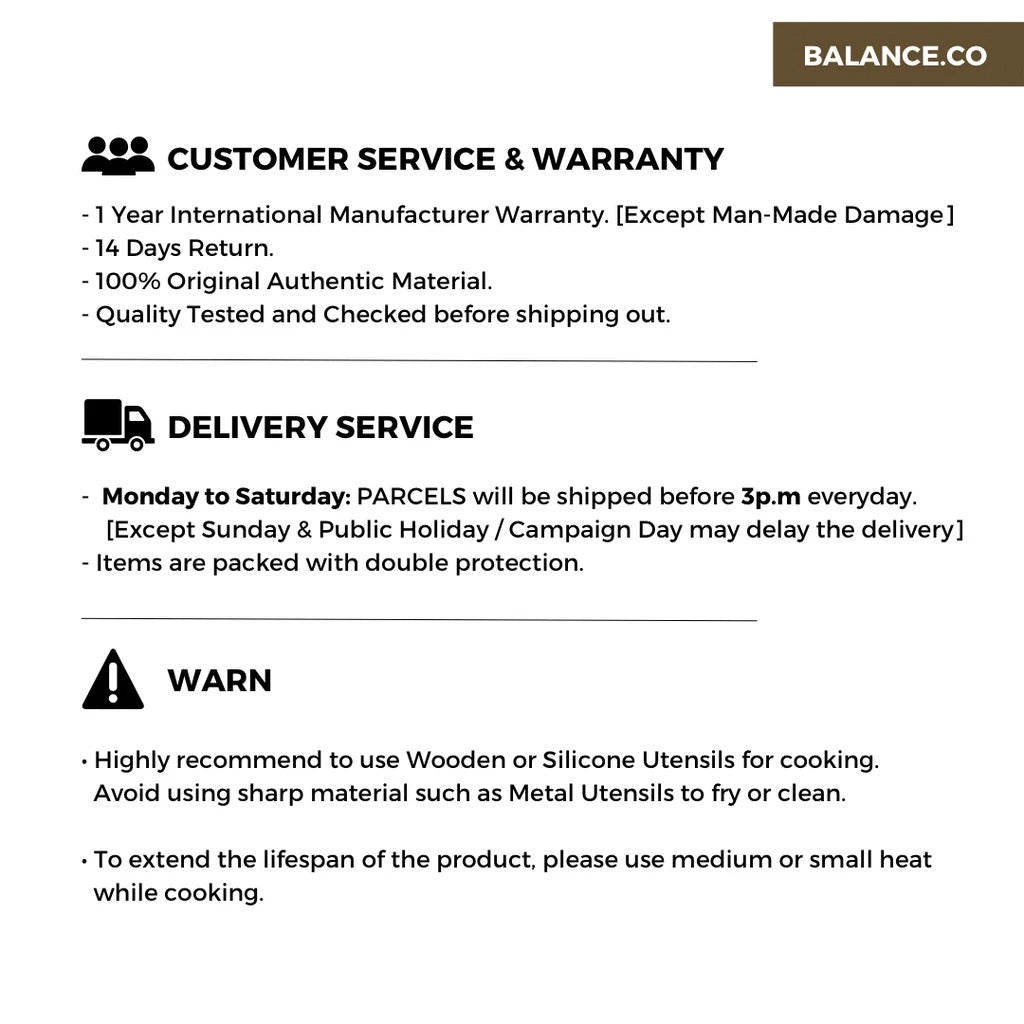Balance.co
16CM Premium Pre-Seasoned Cast Iron Skillets
16CM Premium Pre-Seasoned Cast Iron Skillets
Couldn't load pickup availability
Product Specification
- Weight: 0.65 kg
- Dimensions (with spout): 25.5 cm (L) x 17 cm (W) x 3.2 cm (H)
- Diameter (without spout): Approx. 16 cm
- Thickness: 0.40 cm
- Handle Length: 10 cm
- Capacity: 0.4 L
Packaging:
- Type: Carton Box
- Packaging Weight: 0.95 kg
Compatible Stoves & Hobs:
- Gas, Induction Cooker, Ceramic, Electric Plate, Oven, and Gas on Glass
(Note: Not suitable for microwave or dishwasher use)
What's in the Box:
- 1 x 16 cm Cast Iron Round Skillet
What is Pre-seasoned Cast Iron?
Pre-seasoned cast iron means the skillet has been coated with a protective layer, usually wax or oil, to prevent rusting after manufacturing. This is often referred to as "factory seasoning." However, customers should still clean and re-season the skillet before using it for the first time to enhance its non-stick properties.
Steps to Re-season Your Cast Iron Skillet After Purchase
- Wash your new skillet with soap and a brush to remove any factory residue.
- Rinse thoroughly with water.
- Dry the skillet with a cloth.
- Heat it on the stovetop until it's smoking hot to ensure it is completely dry. (Important: Water can cause rust, so make sure the skillet is fully dry.)
- Apply a thin, even coating of cooking oil (inside and outside).
Tip: Wipe off any excess oil to avoid a sticky finish. - Let it cool or hang to dry, and it’s ready for your next use!
Caution: 4 Mistakes to Avoid When Cooking with a Cast Iron Skillet
-
Not Preheating the Skillet:
Always preheat the skillet before cooking. Placing cold food on a cold skillet will cause the food to stick. -
Skipping the Grease:
After the skillet is heated, add some butter or lard. This not only enhances the flavour but also improves the non-stick properties. -
Constantly Moving the Food While Searing:
When searing, let the food sit undisturbed to create a good crust. Avoid the temptation to keep moving it. -
Flipping Too Soon:
Flip the steak only when a thin, brown crust has formed on the outside for the perfect sear.
How to Clean a Cast Iron Skillet After Cooking
Important: Do not use soap, steel wool, or put it in the dishwasher.
Why? Soap removes the skillet's seasoning (the non-stick layer), and steel wool can scratch the surface, making it rust.
But if you really want to use soap or steel wool:
If you decide to use soap or steel wool, you’ll need to re-season the skillet afterward. Just rub a thin layer of oil all over the skillet (inside and outside), then heat it on the stove or in the oven until the oil forms a protective layer.
- Immediately after cooking, pour hot water into the hot skillet.
- Gently scrub the skillet with a sponge or stiff nylon brush (use tongs to avoid burns).
- Rinse with hot water.
- Sprinkle some salt in the pan and add a little hot water.
- Use a wooden spatula to scrape off any tough stains.
- Rinse thoroughly with water.
- Dry the skillet completely with a towel, then heat it on low on the stovetop.
- Apply a thin layer of oil to season it (both inside and outside), and store it in a dry place.
Share
